“Throughout the years working as a groom, I’ve had my fair share of upsets when on the grounds at a horse show. These frustrations have ranged from a slight annoyance that my rider got pushed down in the order when we had another ring to be in to irate about not having any communication about getting to my horse and rider when they fell on the Burghley Horse Trials (England) cross country field.”
“While it is easy to get sucked into the job of wanting to do the best for your horses, trying to take care of yourself, helping manage schedules for students and clients of the barn–among a million other tasks that a groom is asked to do–we must remember that shows are not actually out to make our lives a living nightmare.”
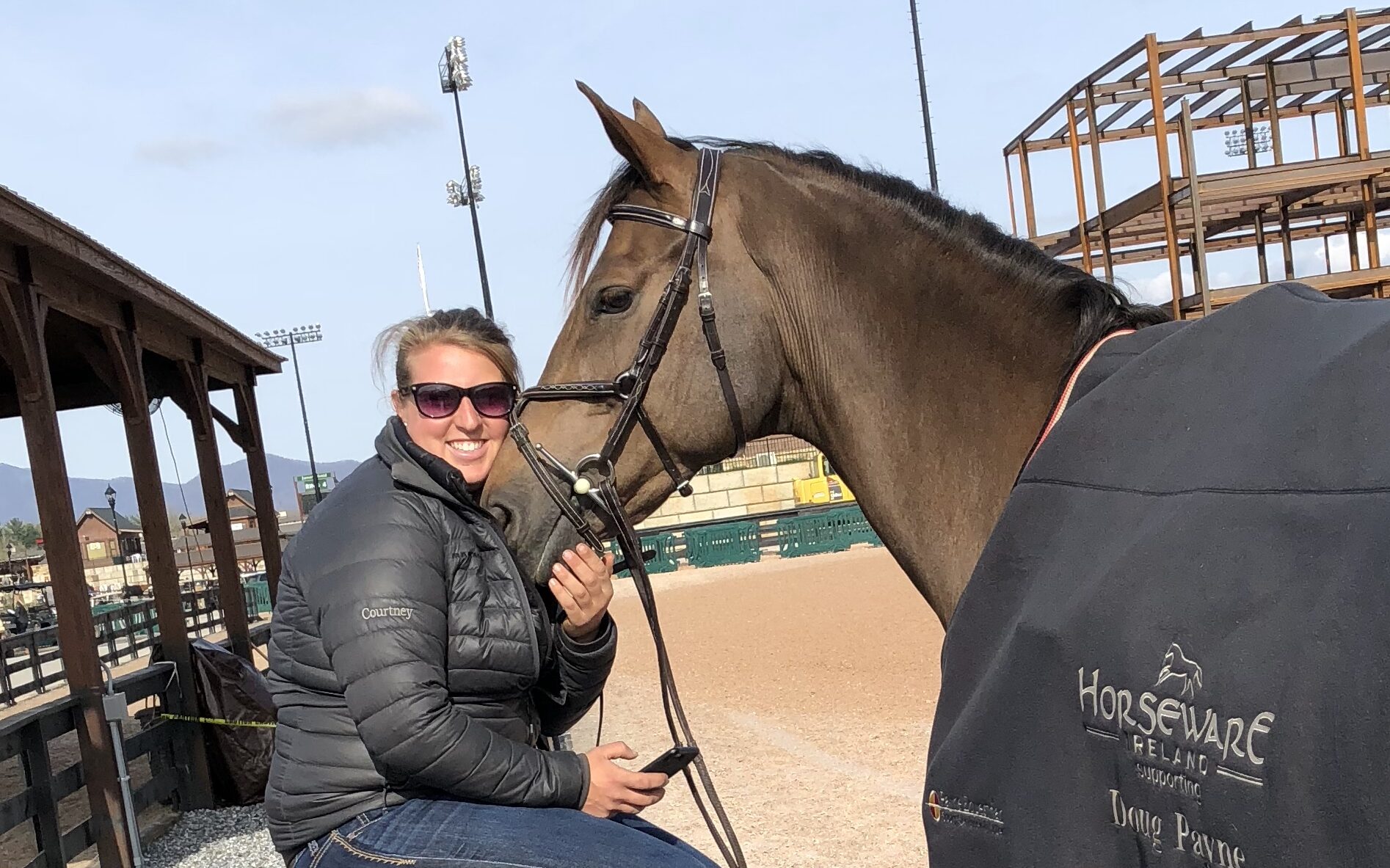
“I recently spoke to a few show organizers who were hesitant to do much to help grooms because they had run-ins with a couple of very rude and entitled grooms. They had arrival times printed in their prize list and the information was emailed to the contact on the entry, yet multiple barns showed up before the stabling opened and grooms were rude and confrontational with the staff when told they could not go into the FEI stabling. Other instances of grooms loudly complaining about night classes—and posting on social media complaining about venues because of night classes–made organizers hesitant to offer prize money or gifts for grooms in these classes who come off as spiteful and ungrateful.
Most show organizers are bound by rules and sponsorship contracts. This is an important thing to remember as a groom or an exhibitor at a horse show. We want our horses to be safe and everything to be a level playing field, that means we must abide by the rules set in place by the governing body.
Here are a few tips to be prepared yourself and not have conflict with your show organizers.”
Moving Into Stabling
“This can be a stressful time for everyone, even the most experienced of travelers. As grooms we want to have plenty of time built into our schedule to get our horses unloaded and into their stalls before the competition begins. This is especially important when traveling from a long distance away. However, for all FEI competitions there are rules and regulations in place to keep all of our horses safe, and these must be considered when traveling.”
Veterinary Check
“All FEI horses must be checked in by a veterinarian before entering stabling. This means that there are “move-in” hours set for the stabling. Arriving outside of these hours means you won’t be allowed to unload your horse into the stabling. This is a rule that the organizer must follow.
If you’re going to arrive before the FEI stabling opens, get the phone number of the show manager or stabling manager and speak with them well in advance. There are usually other stalls that you can use for a night, and some venues will let you go ahead and set up your FEI stall and unload your equipment before moving your horse in to save time. Depending on the circumstances (if you’re coming in on a flight or shipping from very far away) you may be able to arrange moving directly into the stabling.”
Passport Rules
“Have your passport up to date and readily available. If you show up to an FEI competition and your passport isn’t up to date, or you don’t have it, that is not the time to yell at officials. Most of the time someone will try and work with you within the rules, but being rude is not going to make you any friends or help the situation.”
Hours of Stabling and Credentials
“At an FEI competition there are specific hours that you can be in the barn. There are also credentials given to competitors and support staff per horse. Knowing what the stabling hours are and always having your credentials on you makes life easier.”
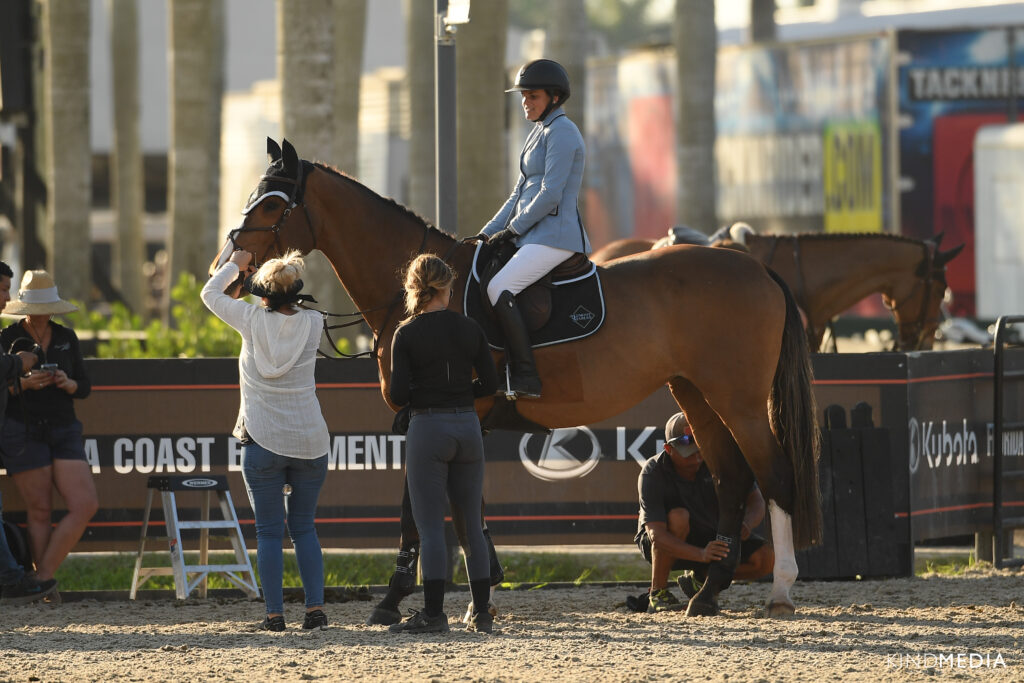
“I see it a lot at events: “The stabling doesn’t open early enough the morning of dressage and groom’s need to get in to feed and do morning chores before their rider shows up to pre-ride.” The time to ask permission for early access into the stabling is not at 5 a.m. when you’re standing at the gate with a security guard. Find your chief steward the evening before, or when you first get ride times, and ask for them to open the stabling a little earlier. Remember that this must be fair for everyone, so you probably need to make sure it is available both dressage days if the event has two days of competition.
If you do happen to lose or forget your credentials, find a steward or go into the show office nicely and ask about getting them replaced. Some venues will issue a temporary credential for the day, which you can return once you have your original or you can pay to replace.”
Hours of Stabling Office and Show Office
“While grooms keep crazy hours throughout the show, remember that the stabling and show offices are not on call 24/7. These are employees of the venue, and they do have set hours they work.
If you need to order shavings, hay, or other items from the show office is it good to know when their hours are. Set yourself reminders to get your orders in with plenty of time before the end of the day. We all get busy and time can slip away from us. By being organized, you keep the staff happy and you aren’t up against a wall trying to get shavings last minute.
The same goes for the show office. While they can get quite busy with exhibitors coming and going throughout the day, not walking in with a long list of scratches and entries as they are trying to finish up for the day is going to keep the show staff happy. These two groups of people are ones you want on your good side if you ever do end up in an emergency situation.”
Look at the Schedule and Be Staffed Appropriately
“This may be my most hated opinion, but night classes are not ever going away. These classes are sponsored by big companies and the venue is obligated to follow the terms of the sponsorship contract. It is also not the venue’s problem if your barn does not bring enough staff for the schedule, and you work long days because of it.
Being rude and upset about the show schedule is not a way to make friends. I know as a groom that night classes make it hard for everyone–even if you have one horse, morning chores still need to get done daily. But if you only have one horse that jumps in the night class, logic would say that they aren’t competing at 8 a.m. the next morning.”
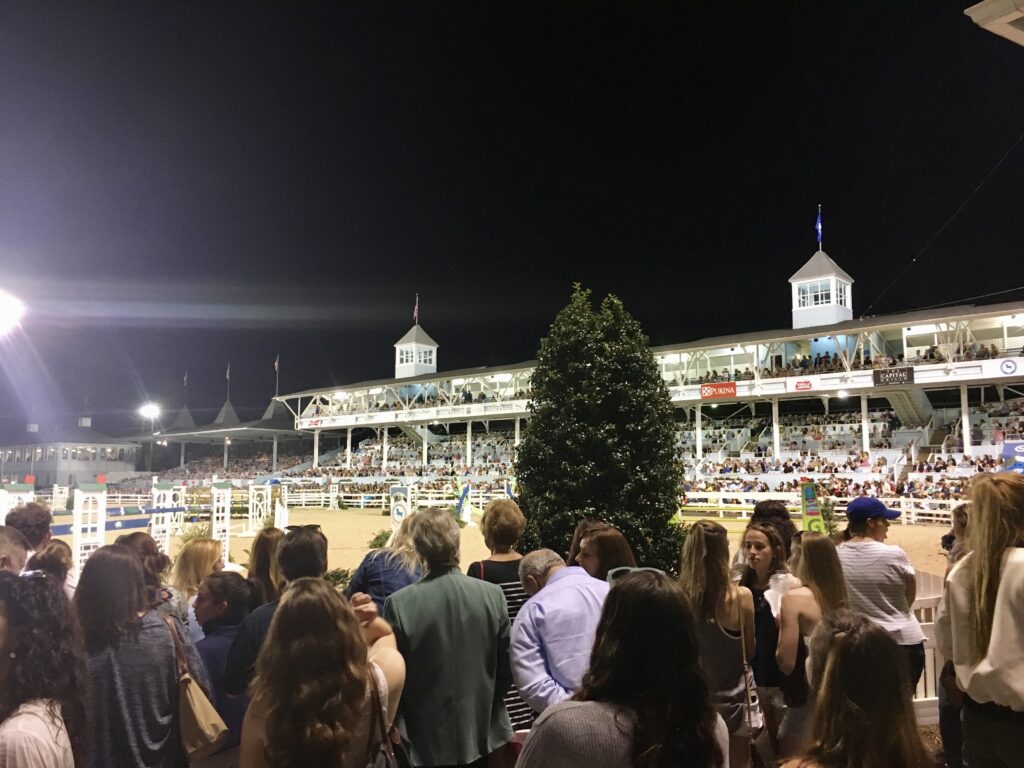
“If your barn is going to bring horses that will be competing the next morning in the 8 a.m. class, speak to your boss about bringing an extra staff member who would do morning chores the following day. Work together as a team to develop a plan that keeps everyone from being overworked and too tired. But don’t blame the venue for scheduling night classes. These classes are big prize money; they are feature classes for the venue. And most of the time the money made from VIP tables, entry tickets, and in restaurants is what actually makes money for the venue to continue running. The show manager didn’t schedule a night class to make the groom’s workday longer.”
Be Kind
“My last point is to be kind. No matter what problems or hurdles arise while at the horse show, be kind to whoever you encounter: ring stewards, officials, employees of the venue, other grooms–just everyone. While whatever is going on may be a huge inconvenience to you at the time, remember that someone is doing their job. There is most likely a rule or regulation in place which protects you and your horse, and if something happened because it was ignored for someone else, you would be even more upset.
Move-in hours are in place so a horse with a fever does not get into the stabling and infect other horses.
Credentials are given out to keep random people from coming in and feeding your horse something that will test positive on a drug test because they don’t know better.
Hours are set in the stabling and show office so that employees get time with their family and we have these positions filled in order to run a show.
Night classes exist because of the generosity of sponsors. They have prize money and offer our sport to fans and spectators who would otherwise not be able to attend. It gives us a more mainstream audience.
These factors, among others, are all a part of what makes our sport function. By being rude, entitled, or critical without knowing all the moving parts will only stunt our growth and development as a sport. We want to be able to continue competing, so the next time you get upset take a second to think: could I have been better in this situation?”
Featured photo courtesy of FEI/Christophe Taniére.
My years working with horses as a rider, stable manager, and groom took me many places — including working as head groom for Olympic Eventer Doug Payne and going to the Tokyo Olympics — but many of my favorite moments were those spent at the finish at the ingate jumping up and down and whooping and hollering, making everyone and every horse feel like they’re special.
Though no longer in the equestrian world full-time, I still want to be a cheerleader for the grooming industry. I hope through my articles on HorseGrooms.com to educate the next generation of grooms and establish a space in which individuals on this side of the industry can band together to make it better and make the most of the industry we all love.
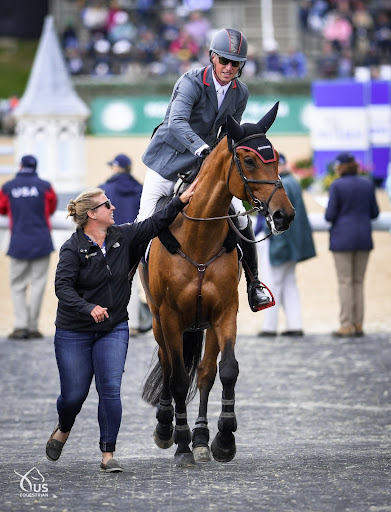
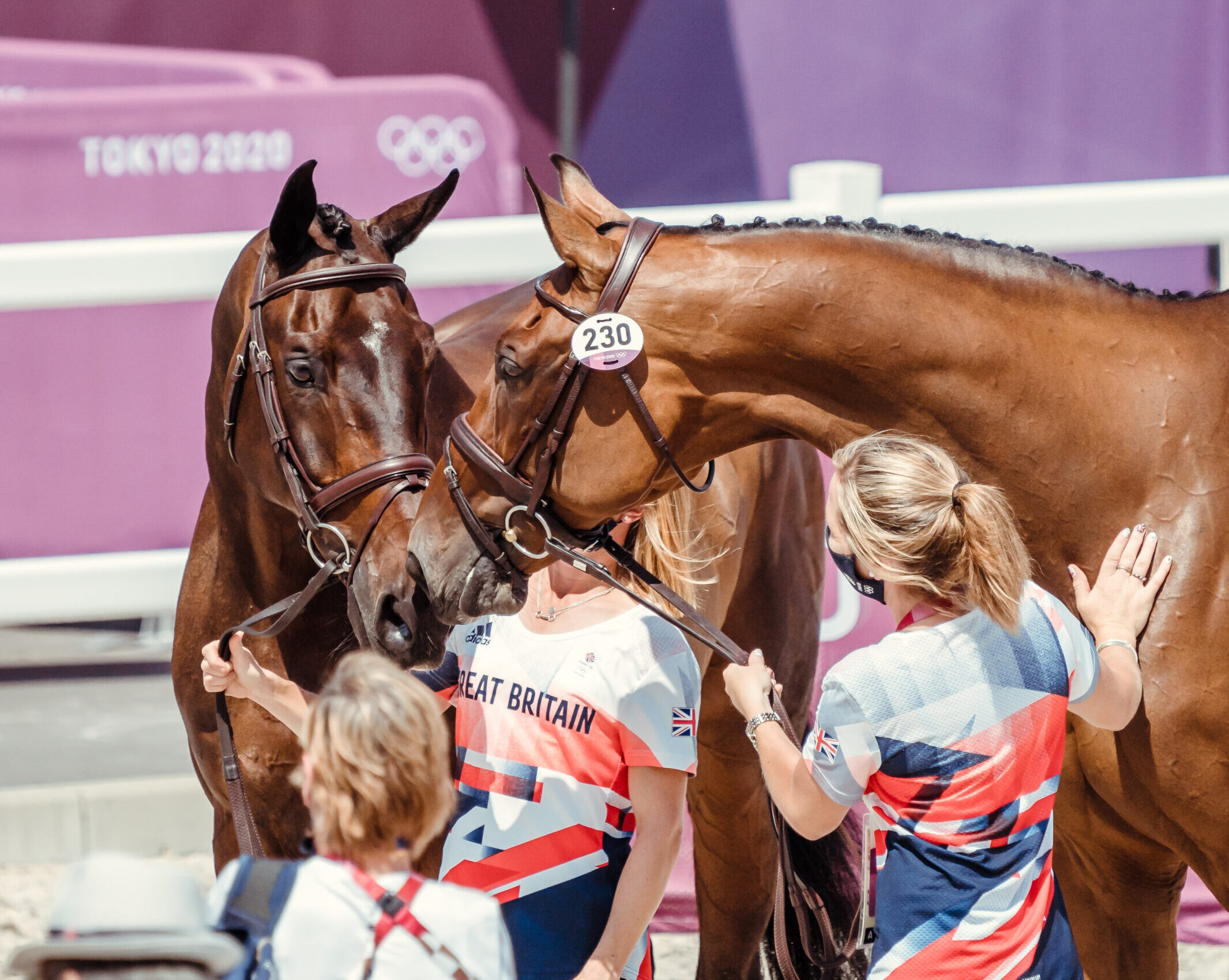

Great Article!!
All Very Valid Points and Learning Tools for Grooms.
Great info for the newer Grooms, Great reminders for the more experienced!!
Thank You!!